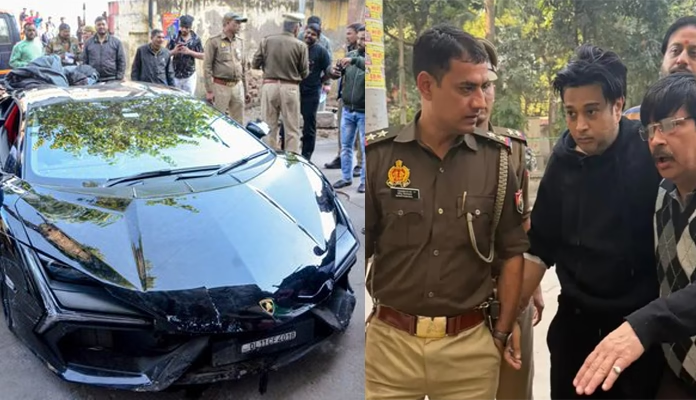
 by Ajay Kumar
by Ajay KumarRashtriya Swayamsevak Sangh (RSS) chief Mohan Bhagwat recently made a sharp remark during a book launch event in Nagpur, stating that leaders should retire after the age of 75 and allow the younger generation to take charge. He attributed this thought to the late RSS ideologue Moropant Pingale, who supposedly said that when a person is presented with a shawl at the age of 75, it signifies that it’s time to step back and let others lead. While the statement may seem general, it has sparked a major political debate in India particularly because both Prime Minister Narendra Modi and Bhagwat himself will turn 75 in September 2025. This has prompted opposition parties to question whether the remark was a subtle message to Modi or merely a reiteration of an ideological principle.
First, it’s important to note that Bhagwat’s statement isn’t new. He made a similar comment back in 2019 but clarified then that Narendra Modi was an exception to the rule because of his extraordinary leadership abilities and relevance. This time, however, Bhagwat made no such exception, which raises the question of whether his perspective has changed. The remark also brings to the surface the ongoing conversation about the relationship between the Bharatiya Janata Party (BJP) and the RSS. The BJP, often considered the ideological offspring of the RSS, has had an informal rule regarding the age limit of 75, under which senior leaders like Lal Krishna Advani, Murli Manohar Joshi, and Jaswant Singh were moved into an advisory role known as the ‘Margdarshak Mandal’. But in Modi’s case, the applicability of this age rule is being questioned due to his ongoing popularity, global stature, and tight grip over the party.
Bhagwat’s statement has become a golden opportunity for the opposition. Congress leader Jairam Ramesh sarcastically said that it was a “ghar wapsi” (homecoming) message for Modi. Sanjay Raut of Shiv Sena (UBT) directly interpreted it as a signal to Modi, pointing out that it was Modi himself who had earlier applied the 75-year age rule and now it remains to be seen whether he will apply it to himself. Aam Aadmi Party (AAP) leader Arvind Kejriwal also raised this issue last year when he wrote a letter to Bhagwat, asking if he agreed with the BJP’s unwritten rule that leaders above the age of 75 should retire. The opposition clearly aims to highlight potential differences between the BJP and RSS in order to create cracks within the ruling alliance.
However, the BJP has dismissed the issue, stating that there is no formal rule in the party’s constitution regarding retirement at the age of 75. Union Home Minister Amit Shah had clarified in May 2023 that Modi would continue to lead until 2029, and that rumors about his retirement were baseless. Maharashtra Chief Minister Devendra Fadnavis also denied that Bhagwat’s remark was directed at Modi and described it as a general comment. Clearly, the BJP is trying to downplay the issue, as Modi’s leadership remains indispensable to the party.
On the other hand, Bhagwat’s comment is equally relevant to himself, as he too will turn 75 soon. There is no formal retirement age in the RSS, and previous Sarsanghchalaks have continued in their roles as long as their health permitted. For instance, Rajju Bhaiya and K.S. Sudarshan stepped down at the age of 78 due to health reasons, while Balasaheb Deoras remained in the position until he was 79. In this context, Bhagwat’s statement also raises questions about his own future. Will he adhere to this principle himself, or was it merely a theoretical comment? RSS sources have attempted to downplay the statement, claiming it was merely a reflection of Pingale’s humorous personality rather than a policy suggestion.
The timing of the statement is also crucial. It comes as the RSS celebrates its centenary and the BJP is trying to consolidate its position after the 2024 Lok Sabha elections. Some analysts believe the remark could be a subtle message regarding the power dynamics between the RSS and the BJP. Tensions between the two were reported even before the 2024 elections especially when BJP President J.P. Nadda stated that the BJP no longer needed the RSS. Some interpret Bhagwat’s statement as an attempt by the RSS to reassert its ideological dominance.
Moreover, the remark raises broader questions about leadership transition and succession in Indian politics. Within the BJP, names like Amit Shah, Nitin Gadkari, and Devendra Fadnavis are emerging as possible successors to Modi. Whether Bhagwat’s comment was general or targeted, it fuels the debate on whether it is time for the BJP to prepare a new generation of leaders. However, considering Modi’s global image and his firm hold over the party, the chances of him retiring seem slim unless he himself decides to step away.
In conclusion, Mohan Bhagwat’s statement is far more than a simple ideological comment. It reflects the complex relationship between the BJP and the RSS, while also shedding light on important issues in Indian politics such as age, leadership, and succession. The opposition is treating it as an opportunity, while the BJP is trying to dismiss it. Whether general or targeted, Bhagwat’s remark has triggered a new political discourse one whose effects will become more visible in the months to come.




